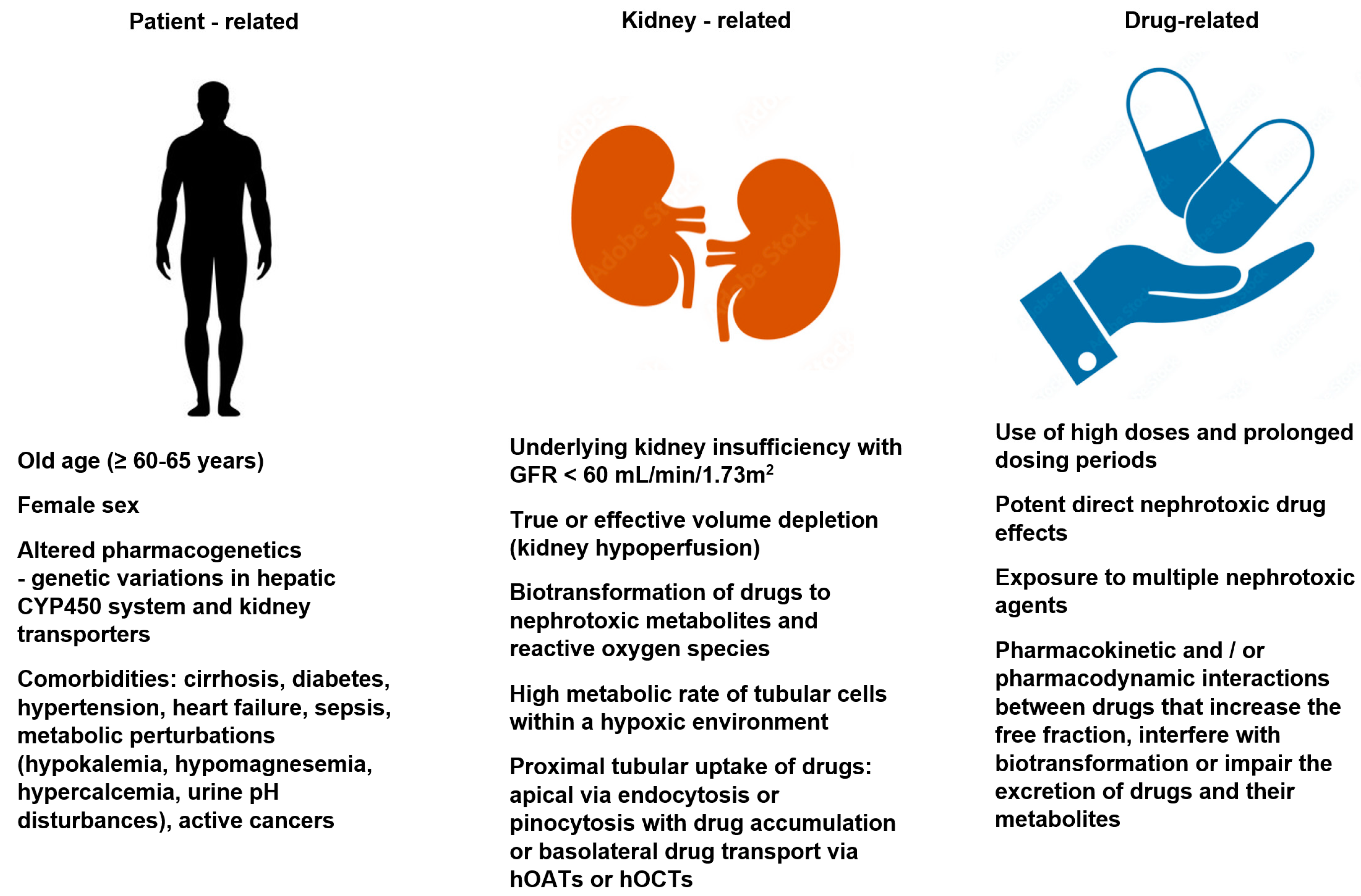Nephrotoxicity (NPT)

Nephrotoxicity: Definition and Characteristics
What is Nephrotoxicity?
Nephrotoxicity (NPT) refers to kidney damage caused by exposure to toxic substances, including certain medications, chemicals, and environmental toxins. This damage can impair kidney function, affecting the organ’s ability to filter waste and maintain fluid, electrolyte, and acid-base balance. Nephrotoxicity may manifest acutely or chronically, leading to conditions ranging from minor functional impairment to acute kidney injury or chronic kidney disease.
Characteristics
Mechanism: Nephrotoxicity arises through diverse mechanisms such as direct tubular cell toxicity, inflammation, oxidative stress, disruption of renal blood flow, crystal formation, and damage to glomerular structures. Key renal sites affected include renal tubules, glomeruli, and interstitium. Some nephrotoxic agents interfere with glomerular hemodynamics, while others cause tubular necrosis or obstructive nephropathy.
Clinical Manifestations: Symptoms of nephrotoxicity can include decreased urine output, fluid retention, electrolyte imbalances, hypertension, and elevated serum creatinine or blood urea nitrogen levels. The severity depends on the toxin, dose, duration of exposure, and patient vulnerability.
Risk Factors: Age, pre-existing kidney disease, dehydration, and concurrent use of multiple nephrotoxic agents enhance susceptibility to nephrotoxicity.
Clinical Significance
Nephrotoxicity is a major concern in clinical practice, especially in patients receiving certain antibiotics, chemotherapeutic agents like cisplatin, nonsteroidal anti-inflammatory drugs, and radiographic contrast media. Early detection using biomarkers and monitoring renal function tests is essential to prevent irreversible damage. Management includes dose adjustment, hydration, discontinuation of offending agents, and supportive care.
Key Points
Nephrotoxicity denotes toxic kidney injury commonly caused by drugs or chemicals.
Involves tubular, glomerular, and vascular damage with diverse mechanisms.
Presents with impaired renal function and associated clinical symptoms.
Early recognition and intervention are vital to minimize long-term renal damage.
Consult with Our Team of Experts Now!
For comprehensive evaluation, diagnosis, and management of nephrotoxicity risk or symptoms, consult our nephrology and pharmacology specialists for individualized care using Cellular Immunotherapies.
References:
- Kwiatkowska E. The mechanism of drug nephrotoxicity and the methods for prevention. Toxicol Rep. 2021;8:30-43. doi:10.1016/j.toxrep.2021.05.008. Available at: https://doi.org/10.1016/j.toxrep.2021.05.008
- Al-Naimi MS. Nephrotoxicity: Role and significance of renal biomarkers. J Clin Med. 2022;11(21):6318. doi:10.3390/jcm11216318. Available at: https://doi.org/10.3390/jcm11216318
- Xi K, Zhang Y, Wang J. Unveiling the mechanisms of nephrotoxicity caused by drugs: insights from systems bioinformatics. Pharmacol Res. 2023;188:106606. doi:10.1016/j.phrs.2023.106606. Available at: https://doi.org/10.1016/j.phrs.2023.106606
- Barnett LMA. Nephrotoxicity and renal pathophysiology: A contemporary review. Toxicol Sci. 2018;164(2):379-392. doi:10.1093/toxsci/kfy106. Available at: https://doi.org/10.1093/toxsci/kfy106
- News Medical. What is nephrotoxicity? 2022. Available at: https://www.news-medical.net/life-sciences/What-is-Nephrotoxicity.aspx















